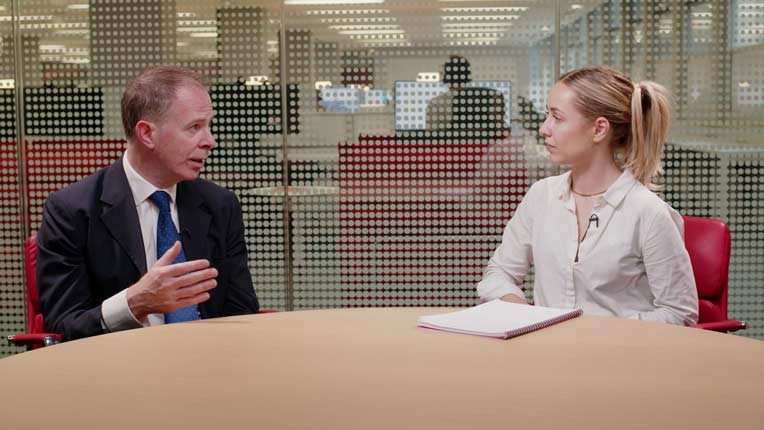Emerging Markets could be null and void as a moniker before long – like one well-known purple pop star, they may soon be referred to as the Countries Formerly Known as Emerging Markets. Data has revealed the emerging nations are splitting clean in two; divided in terms of trade, currency strength, inflation and the public purse.
Emerging markets are diverging – moving up or down the risk scale. Take inflation – there are 62 countries in the Emerging Market Bond Index Global. Thirty two of these have inflation of below 6%, 24 of them are battling inflation at a rate of more than 6%. Foreign exchange reserves? Thirty four countries have FX reserves of more than 15% of GDP, but 28 countries do not.
Credit ratings reflect this too, with 57% of bonds issued by emerging markets rated BBB or higher, and the rest technically risky high yield instruments.
Jim Barrineau, Schroder’s head of emerging market debt, said that the phrase “emerging markets” are becoming increasing difficult to use as a grouping word as an investor.
“There have been a number of factors that have influenced both bonds and equities in emerging markets – these markets are maturing, liquidity has dried up thanks to the end of quantitative easing, commodity prices have declined and there has been a resulting sharp decline in foreign exchange reserves. But these factors have not affected all emerging markets equally,” he said at a conference in New York earlier this month.
Commodity prices falling have been bad for Brazil, Russia and Venezuela, whose economies are largely dependent on exporting those natural resources which have slumped in value. But for countries like Chile it has been a mixed bag – they export copper, but import oil so have been net beneficiaries of the commodity slump. Similarly Indonesia exports metals but imports oil and iron and so has benefitted from cheaper costs.
Barrineau says that some emerging economies are learning to adapt – Russia’s currency is in freefall for example, but then so is the price of oil, so the economy needs currency weakness as it leads to investment opportunities.
“Currency weakness makes for a more competitive economy and means a nation is more attractive to foreign investment,” he added.
Having said this he remains concerned about Russia’s fundamentals, as well as those of Chile, Peru, Mexico and Turkey.
Asia on the other hand is a net beneficiary of the commodity bust but it also has fiscal stability and is undergoing significant reform of its political systems, making it a positive story among emerging markets.
“High economic growth rates will remain a key attraction of many emerging markets, in our opinion. Even with major economies like Brazil and Russia slowing down, overall growth in emerging markets during 2015 is expected to be comfortably in excess of that achieved by developed markets, with China and India likely to drive the Asian region to particularly strong growth,” said veteran emerging markets investor Dr Mark Mobius of Franklin Templeton.
Mobius also points out that South East Asia is likely to be boosted by Japanese quantitative easing, which the Bank of Japan confirmed it was extending on October 31 by ¥80 trillion or $712 billion each year, up from ¥60 trillion.




























